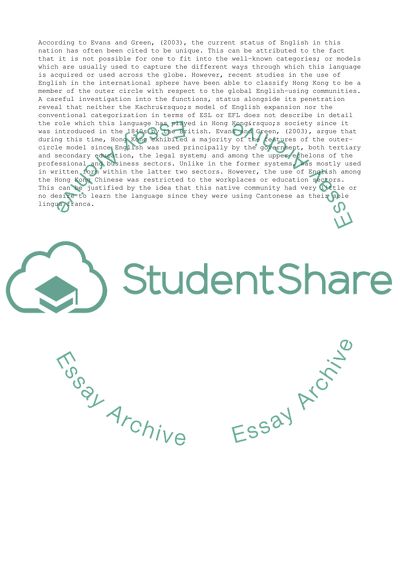Cite this document
(The Use of English Within Hong Both in the Business and Professional Research Paper, n.d.)
The Use of English Within Hong Both in the Business and Professional Research Paper. Retrieved from https://studentshare.org/business/1730732-the-role-of-english-in-the-business-and-professional-domains-in-hong-kong
The Use of English Within Hong Both in the Business and Professional Research Paper. Retrieved from https://studentshare.org/business/1730732-the-role-of-english-in-the-business-and-professional-domains-in-hong-kong
(The Use of English Within Hong Both in the Business and Professional Research Paper)
The Use of English Within Hong Both in the Business and Professional Research Paper. https://studentshare.org/business/1730732-the-role-of-english-in-the-business-and-professional-domains-in-hong-kong.
The Use of English Within Hong Both in the Business and Professional Research Paper. https://studentshare.org/business/1730732-the-role-of-english-in-the-business-and-professional-domains-in-hong-kong.
“The Use of English Within Hong Both in the Business and Professional Research Paper”, n.d. https://studentshare.org/business/1730732-the-role-of-english-in-the-business-and-professional-domains-in-hong-kong.


